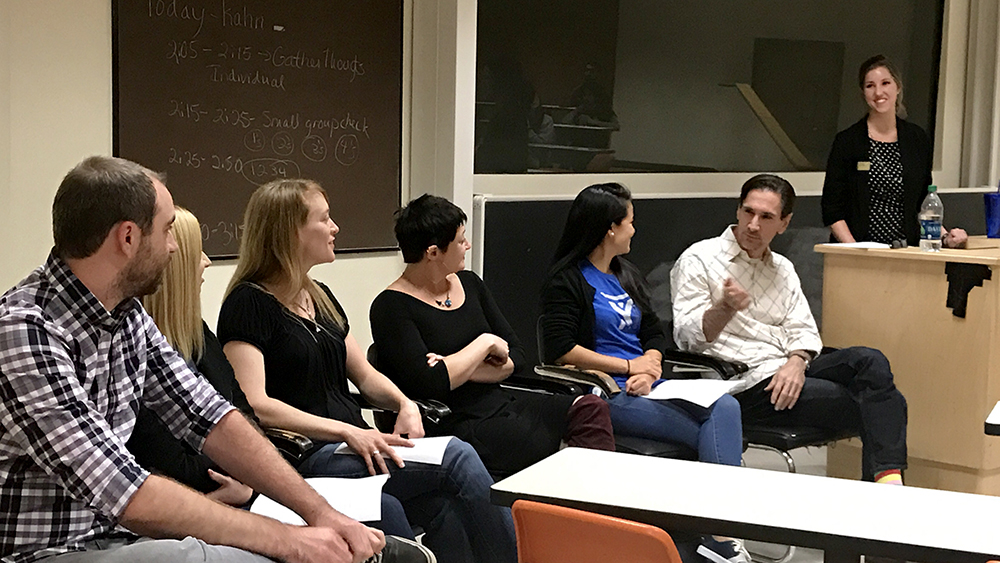No Computer Science Degree? No Problem.
Would it surprise you to know that not all members of the tech industry studied computer science in college? Last Wednesday, the James W. Vick Center for Strategic Advising & Career Counseling hosted six professionals from the tech industry who shared their stories and educational backgrounds with UT students.
Panelists who studied liberal arts in college detailed how their degrees helped them to "learn how to learn," a skill essential to the ever-changing tech industry. Alex Stevens explained how her philosophy major helped her as a senior quality assurance engineer at ShippingEasy. "Coming into tech with no previous knowledge and therefore a totally clean slate, I taught myself how to learn, ask questions, and not know. These were skills I had already learned in college." Troy Swanson shared how his business degree remained relevant to his career as a software engineer at Tuple Labs. "In college, I worked in groups all the time, just like I do now. I had to deal with interpersonal skills and how to bring out people’s strengths."
Panelists reflected on their experiences outside the classroom and how it helped them find their career paths. Deborah Russell, senior principal usability engineer at Dell, explained how her interest in psychology led her to the tech industry. "Even though I majored in psychology, I had to take science and math because I went to a tech school. Once I had to design robots for a psychological research study, and through that experience I learned some minor coding and Photoshop. It sparked an interest in tech that I didn't know I had." Each panelist encouraged students to seek out experiential learning opportunities like internships, volunteer work, and networking.
Panelists also highlighted the joys and frustrations of work in the tech industry. Stevens described the pressure of the industry's demands and how it was ever-changing. Mickie Betz, a software engineer at Atlassian, echoed the sentiment. "Even if I had learned [a particular tech skill] 6 years ago, it would already be different now," she explained. Erika Angarita, also a software engineer at Atlassian with a law background, highlighted the job she found working in tech. "My job challenges me every day. Every task is different. It's detective work!"
The panel concluded with advice to students on how to gain experience in the field, through local networking events, coding bootcamps, and posting their work on various platforms (check out GitHub, Bit Bucket, WeWork). Stevens encourage students to remain true to themselves as they entered into the field. "Tech companies like you for you and hire you for your mind, your independence, and for your ability to work. In college, people can think very narrowly. The truth is, your major doesn’t necessarily make your career path. You don’t have to have all the answers. Just get started!"
For more information on the tech industry and how you can explore your career options, schedule an appointment with a career counselor at the Vick Center.
